More boys have a hard time staying focused, while anxiety and loneliness is higher among girls as parental attention dips, says a WHO report
At least 25 per cent of adolescents in India are bearing the brunt of depression, a World Health Organisation (WHO) report revealed on Thursday.
Adolescents (13-15 years), who constitute around 5.8 per cent of the total population in India, feel sad and hopeless almost every day. Around 10 per cent of them are distracted and have a hard time staying focused on their homework and usual work most of the times or always.
Boys are more depressed and distracted compared to girls, the WHO report titled Mental Health Status of Adolescents in South-East Asia, 2017, stated.
While eight per cent suffer from anxiety, (they could not sleep because of being worried and felt lonely most of times or always) around 10 per cent have no close friends. Anxiety and loneliness is higher among girls.
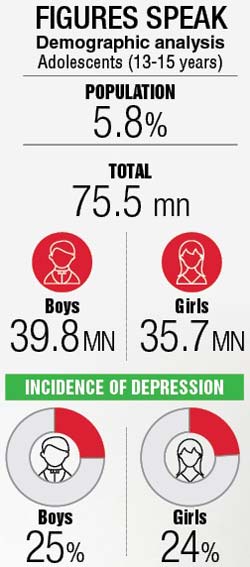 According to the report, parental engagement with adolescents has been found to be low in India with less than half of the parents (47 per cent) caring to check if their homework was done or not.
According to the report, parental engagement with adolescents has been found to be low in India with less than half of the parents (47 per cent) caring to check if their homework was done or not.
"A high proportion of adolescents reported low level of parental engagement in the region. Public policies, youth programmes and schools should involve parents and emphasise the need to better engage with their adolescent children in meaningful ways," the report stated.
Though depression affects all demographic groups, it is more commonly experienced by adolescents and young adults. The illness often manifests itself as disturbed sleep or loss of appetite, feelings of guilt or low self-worth, or feelings of tiredness and lethargy.
It may also manifest as agitation or physical restlessness, substance dependance, reduced concentration and suicidal thoughts or acts. Depression can also lead to suicide, which is the second highest cause of death among 15- to 29-year-olds.
"We may help them with everyday tasks, encourage eating and sleeping patterns, and join them for an exercise session such as yoga. If they are thinking about self-harm, we can seek professional medical help and stay by their side when they need our love and support most," said Dr Poonam Khetrapal Singh, Regional Director, WHO South-East Asia.
"An increasing number of nuclear families has children paying the price. Children in nuclear families are less cared for and thus they have lesser bonding with their parents," said Dr Anjan Prakash, consultant, Ministry of Health and Family Welfare.
SURVEY SAYS
25 per cent: Felt so sad/hopeless almost every day for two weeks or more in a row
10 per cent: Had a hard time staying focused on their homework and usual work most of times
8 per cent: Suffered from anxiety and could not sleep because of being worried
8 per cent: Felt lonely most of times or always
10 per cent: Had no close friends
![submenu-img]() ‘Body dismembered, pureed in blender’: Former model gets brutally murdered by her husband after..
‘Body dismembered, pureed in blender’: Former model gets brutally murdered by her husband after..![submenu-img]() Venom The Last Dance trailer: Tom Hardy channels Tom Cruise, battles boss symbiote Knull, fans say 'it will be a blast'
Venom The Last Dance trailer: Tom Hardy channels Tom Cruise, battles boss symbiote Knull, fans say 'it will be a blast'![submenu-img]() Meet man who once lost Rs 1.27 lakh crore in a day, today owns giant e-commerce business worth crores, he is…
Meet man who once lost Rs 1.27 lakh crore in a day, today owns giant e-commerce business worth crores, he is…![submenu-img]() Katy Perry, Orlando Bloom share steamy kiss at MTV Video Music Awards 2024; video goes viral
Katy Perry, Orlando Bloom share steamy kiss at MTV Video Music Awards 2024; video goes viral![submenu-img]() 'Ready to resign...': CM Mamata Banerjee as junior doctors continue protest over Kolkata rape-murder case
'Ready to resign...': CM Mamata Banerjee as junior doctors continue protest over Kolkata rape-murder case![submenu-img]() हरियाणा चुनाव से पहले क्या बाहर आएंगे Arvind Kejriwal? जमानत पर आज फैसला सुनाएगा सुप्रीम कोर्ट
हरियाणा चुनाव से पहले क्या बाहर आएंगे Arvind Kejriwal? जमानत पर आज फैसला सुनाएगा सुप्रीम कोर्ट![submenu-img]() दिल्ली के Greater Kailash में ताबड़तोड़ फायरिंग, एक शख्स की मौत, जानें पूरा मामला
दिल्ली के Greater Kailash में ताबड़तोड़ फायरिंग, एक शख्स की मौत, जानें पूरा मामला![submenu-img]() UP BJP में बड़ा फेरबदल, सीएम Yogi Adityanath ने एक साथ बदले 75 जिलों के प्रभारी मंत्री, केशव प्रसाद मौर्य को मिली ये जिम्मेदारी
UP BJP में बड़ा फेरबदल, सीएम Yogi Adityanath ने एक साथ बदले 75 जिलों के प्रभारी मंत्री, केशव प्रसाद मौर्य को मिली ये जिम्मेदारी![submenu-img]() Weather Updates: Delhi-NCR समेत यूपी-राजस्थान में झमाझम बारिश, उत्तराखंड में रेड अलर्ट, पढ़ें IMD अपडेट
Weather Updates: Delhi-NCR समेत यूपी-राजस्थान में झमाझम बारिश, उत्तराखंड में रेड अलर्ट, पढ़ें IMD अपडेट ![submenu-img]() Jammu and Kashmir Elections 2024: संसद हमले के दोषी अफजल गुरु के भाई की चुनाव में एंट्री, कश्मीर की इस सीट से भरा नामांकन
Jammu and Kashmir Elections 2024: संसद हमले के दोषी अफजल गुरु के भाई की चुनाव में एंट्री, कश्मीर की इस सीट से भरा नामांकन![submenu-img]() ‘30 LPA, 3BHK, no in-laws’: Woman earning Rs 1.32 lakh salary lists demands for future husband, netizens say...
‘30 LPA, 3BHK, no in-laws’: Woman earning Rs 1.32 lakh salary lists demands for future husband, netizens say...![submenu-img]() In a big EV push, Centre launches Rs 10900 crore PM E-Drive scheme to replace…
In a big EV push, Centre launches Rs 10900 crore PM E-Drive scheme to replace…![submenu-img]() World’s longest car has helipad, swimming pool, mini-golf course, can seat over…; it cost…
World’s longest car has helipad, swimming pool, mini-golf course, can seat over…; it cost…![submenu-img]() This car sets new Guinness world record for becoming longest driving EV on a single charge; it cost Rs…
This car sets new Guinness world record for becoming longest driving EV on a single charge; it cost Rs…![submenu-img]() MG Windsor EV launched in India: Check price, features, design of India’s first ‘CUV’
MG Windsor EV launched in India: Check price, features, design of India’s first ‘CUV’![submenu-img]() Meet woman, who belongs to tribal family, cracked UPSC exam in fourth attempt, became IAS officer with AIR...
Meet woman, who belongs to tribal family, cracked UPSC exam in fourth attempt, became IAS officer with AIR...![submenu-img]() Meet woman who cracked UPSC in 1st attempt without coaching, became IPS at 22, but resigned after 4 years due to...
Meet woman who cracked UPSC in 1st attempt without coaching, became IPS at 22, but resigned after 4 years due to...![submenu-img]() Meet genius, an Indian who worked with IIT, had NASA connection, went missing and was found years later in...
Meet genius, an Indian who worked with IIT, had NASA connection, went missing and was found years later in...![submenu-img]() Meet man, who lost eyesight at 8, got record-breaking job offer after graduation, not from IIT, NIT, salary is Rs...
Meet man, who lost eyesight at 8, got record-breaking job offer after graduation, not from IIT, NIT, salary is Rs...![submenu-img]() Meet woman, IAS Tina Dabi's friend who cracked UPSC exam in first attempt without coaching, secured AIR...
Meet woman, IAS Tina Dabi's friend who cracked UPSC exam in first attempt without coaching, secured AIR...![submenu-img]() Malaika Arora Father Death: Anil Mehta's Final Words To His Daughter Malaika Arora
Malaika Arora Father Death: Anil Mehta's Final Words To His Daughter Malaika Arora![submenu-img]() Chandigarh Blast: Grenade Explosion In Sector 10; Auto Driver Arrested, Investigation Ongoing
Chandigarh Blast: Grenade Explosion In Sector 10; Auto Driver Arrested, Investigation Ongoing![submenu-img]() BSF Jawan Injured As Pakistan Violates Ceasefire Near LoC Days Before Jammu Kashmir Elections 2024
BSF Jawan Injured As Pakistan Violates Ceasefire Near LoC Days Before Jammu Kashmir Elections 2024![submenu-img]() Rahul Gandhi US Visit: Rahul Gandhi Criticizes BJP And RSS At National Press Club, US | INDIA
Rahul Gandhi US Visit: Rahul Gandhi Criticizes BJP And RSS At National Press Club, US | INDIA![submenu-img]() Kolkata Doctor Case: ED Reveals Properties Of RG Kar Ex-Principal Sandip Ghosh Found In Raids
Kolkata Doctor Case: ED Reveals Properties Of RG Kar Ex-Principal Sandip Ghosh Found In Raids![submenu-img]() Meet man who once lost Rs 1.27 lakh crore in a day, today owns giant e-commerce business worth crores, he is…
Meet man who once lost Rs 1.27 lakh crore in a day, today owns giant e-commerce business worth crores, he is…![submenu-img]() Meet woman, popular TV actress who left acting to build Rs 820 crore company from scratch, she owns one of famous…
Meet woman, popular TV actress who left acting to build Rs 820 crore company from scratch, she owns one of famous…![submenu-img]() Eastman Strengthens Leadership team, Charts Course for a New Future
Eastman Strengthens Leadership team, Charts Course for a New Future![submenu-img]() Emotional Intelligence for Entrepreneurs: A Key to Business Success
Emotional Intelligence for Entrepreneurs: A Key to Business Success![submenu-img]() Meet Pakistan’s richest man with Rs 111674 crore net worth, owns Jacksonville Jaguars and luxury properties
Meet Pakistan’s richest man with Rs 111674 crore net worth, owns Jacksonville Jaguars and luxury properties![submenu-img]() AI Insights: Top 7 high-paying jobs in India by 2050
AI Insights: Top 7 high-paying jobs in India by 2050![submenu-img]() Streaming This Week: Sector 36, Berlin, Khalbali Records, Mr Bachchan, latest OTT releases to binge-watch
Streaming This Week: Sector 36, Berlin, Khalbali Records, Mr Bachchan, latest OTT releases to binge-watch![submenu-img]() Meet Rishi Kapoor's heroine who became star with hit debut, quit films after continuous flops; left India to live in...
Meet Rishi Kapoor's heroine who became star with hit debut, quit films after continuous flops; left India to live in...![submenu-img]() India's most successful star kid gave blockbusters at 25, bigger than superstar dad; not Ranbir, Hrithik, Salman, Alia
India's most successful star kid gave blockbusters at 25, bigger than superstar dad; not Ranbir, Hrithik, Salman, Alia![submenu-img]() Meet India's most unsuccessful actor, has 180 flops, no hit since 1998, still a superstar; not Govinda, Akshay, Salman
Meet India's most unsuccessful actor, has 180 flops, no hit since 1998, still a superstar; not Govinda, Akshay, Salman ![submenu-img]() 'Ready to resign...': CM Mamata Banerjee as junior doctors continue protest over Kolkata rape-murder case
'Ready to resign...': CM Mamata Banerjee as junior doctors continue protest over Kolkata rape-murder case![submenu-img]() Gaurs Group Conducts Live Lottery for 3X Over-subscribed project- Gaur NYC Residences
Gaurs Group Conducts Live Lottery for 3X Over-subscribed project- Gaur NYC Residences![submenu-img]() LAWA Global Innovations: Where Adventure Meets Passion Through a Dynamic Husband-and-Wife Duo
LAWA Global Innovations: Where Adventure Meets Passion Through a Dynamic Husband-and-Wife Duo![submenu-img]() Who is Premanand Maharaj, AI victim whose voice is being used for...
Who is Premanand Maharaj, AI victim whose voice is being used for...![submenu-img]() Kerala: Professor collapses and dies during Onam celebrations at college after…
Kerala: Professor collapses and dies during Onam celebrations at college after…


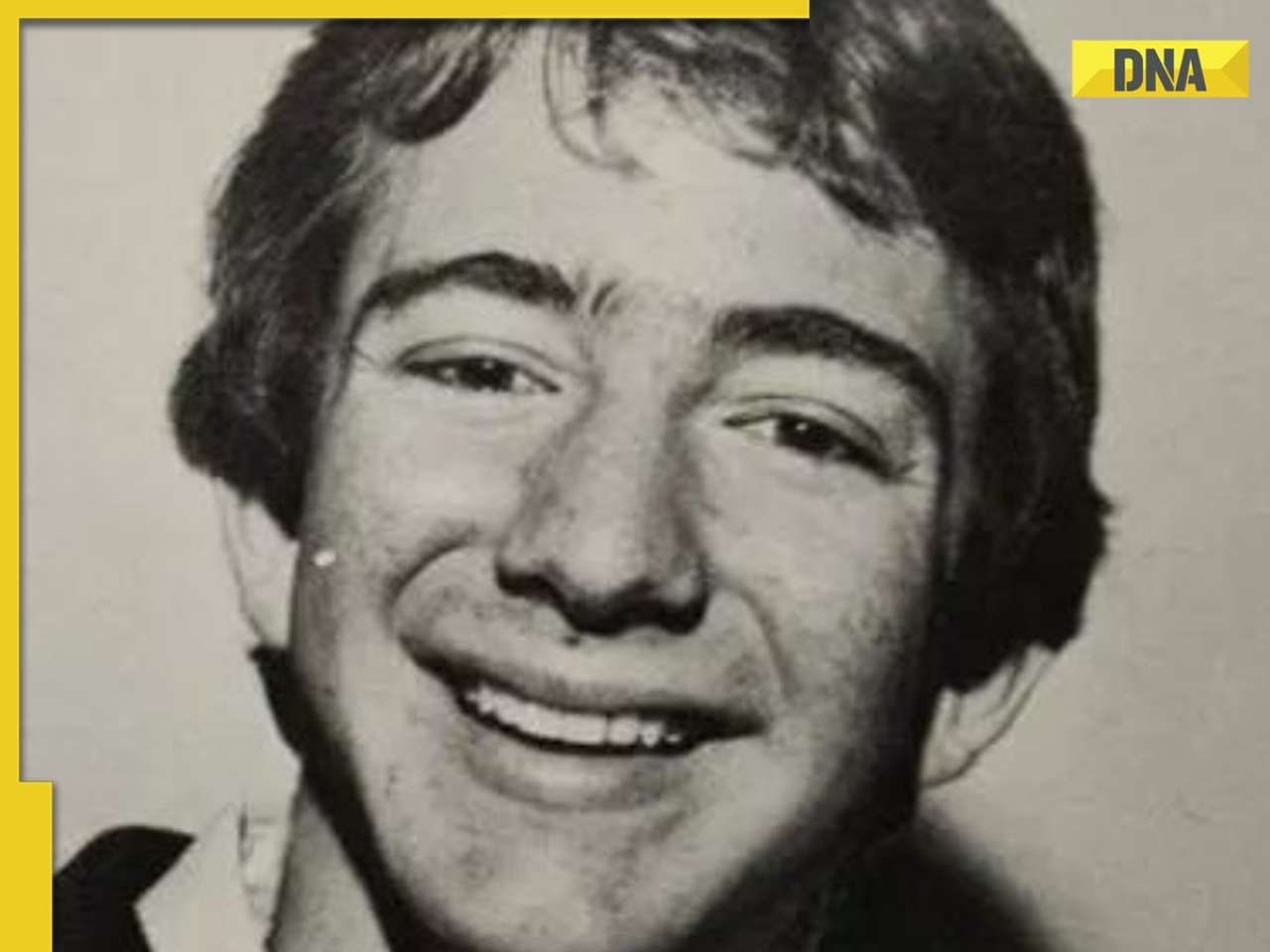

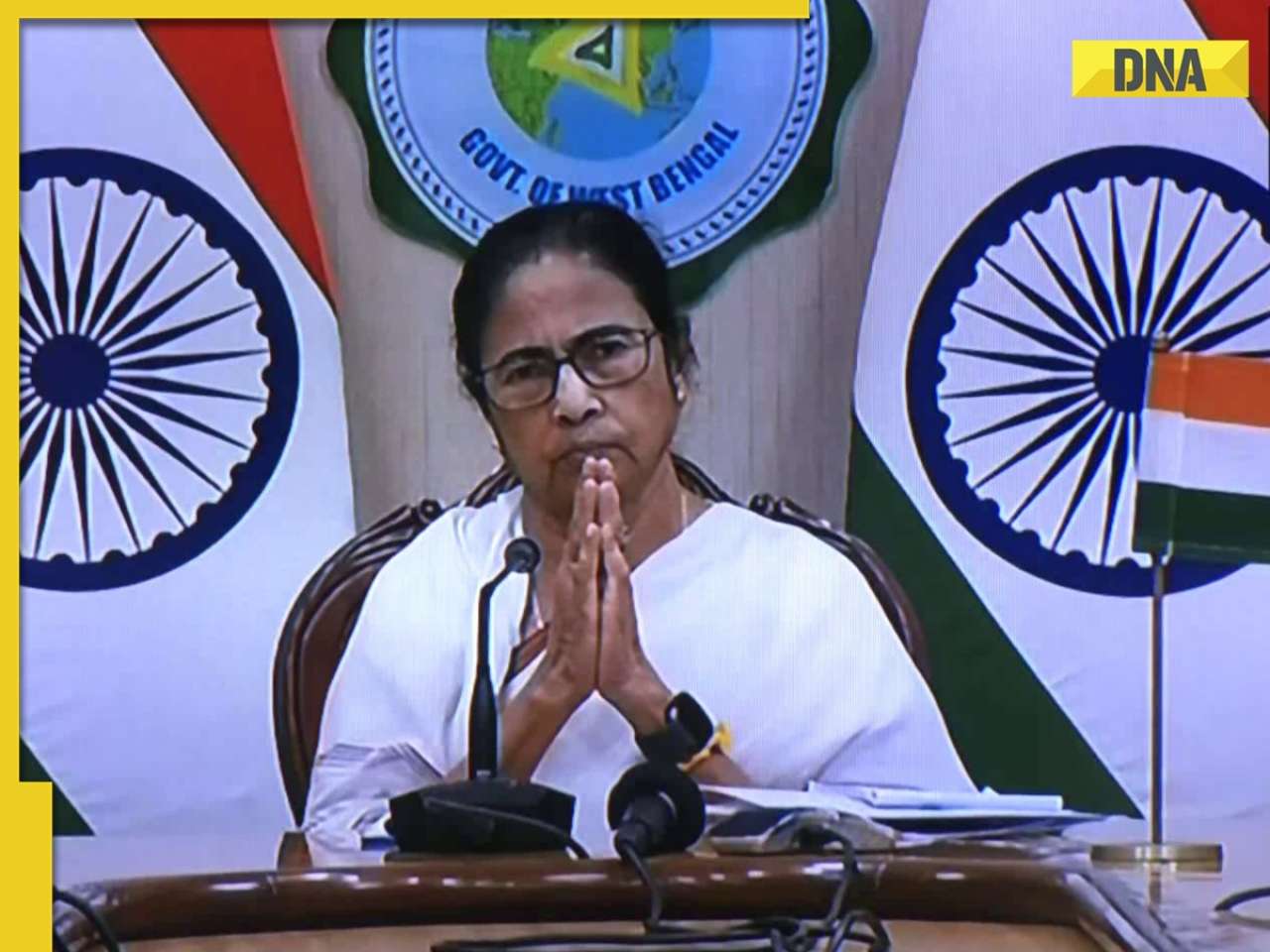





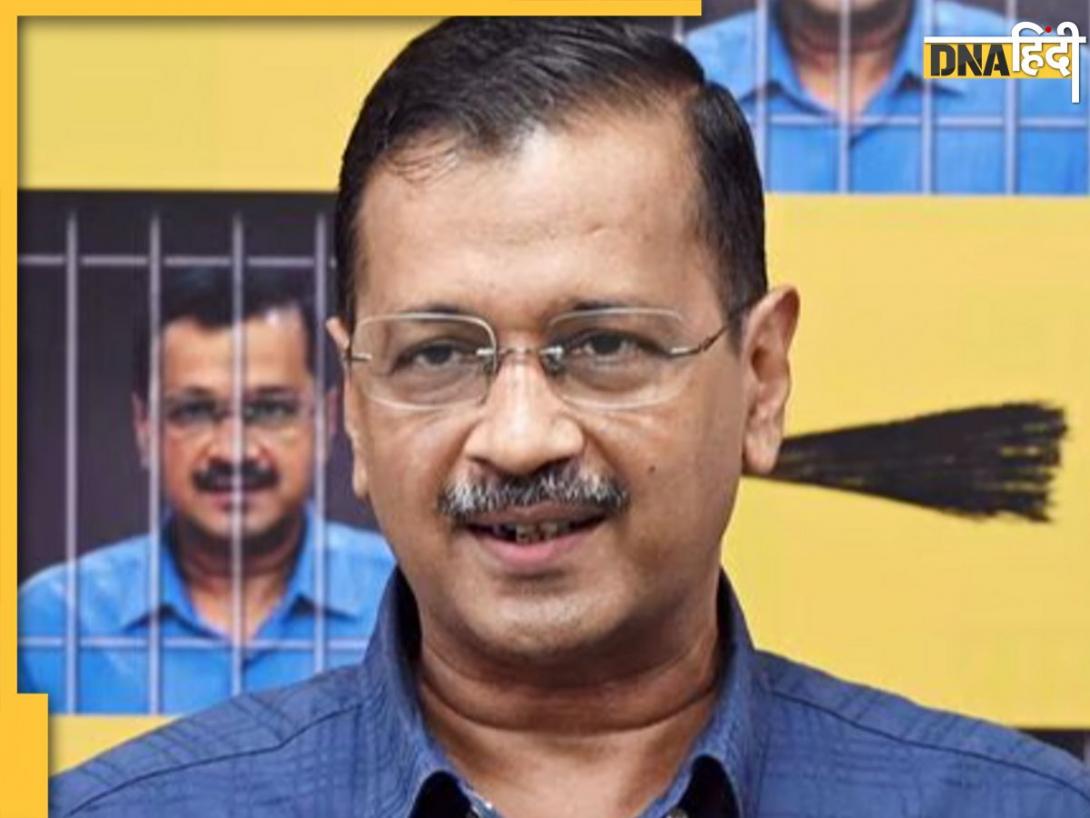

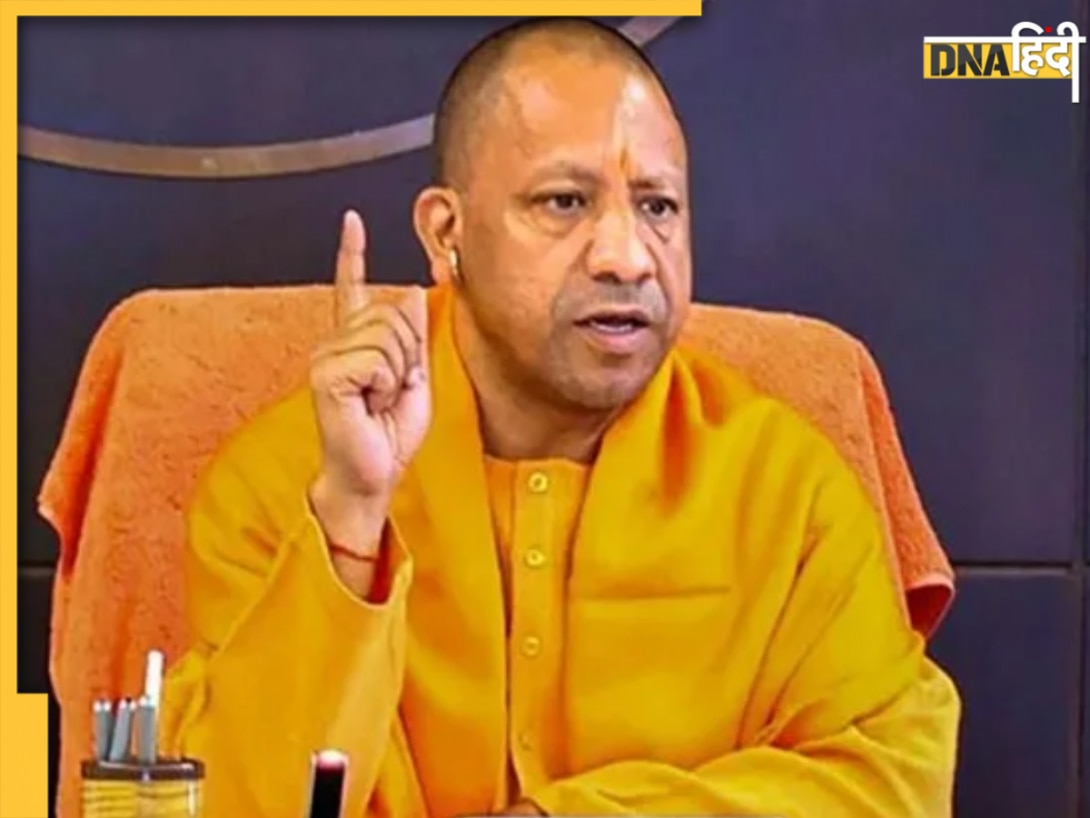
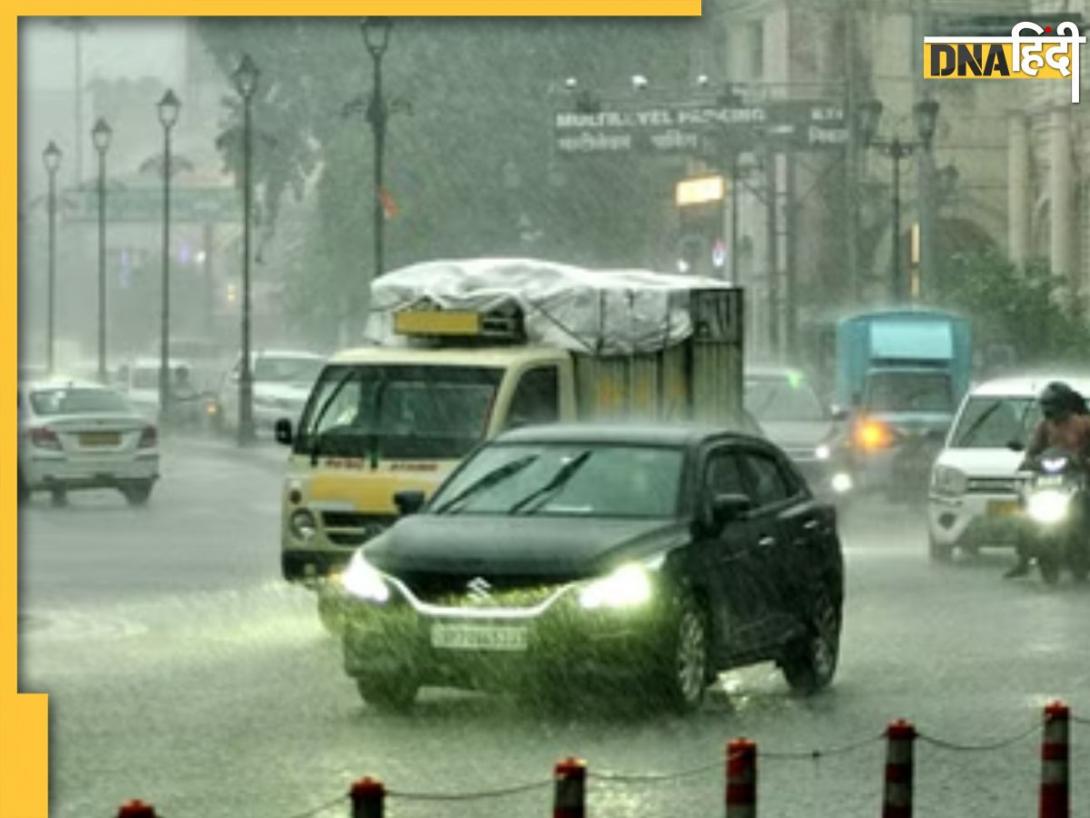






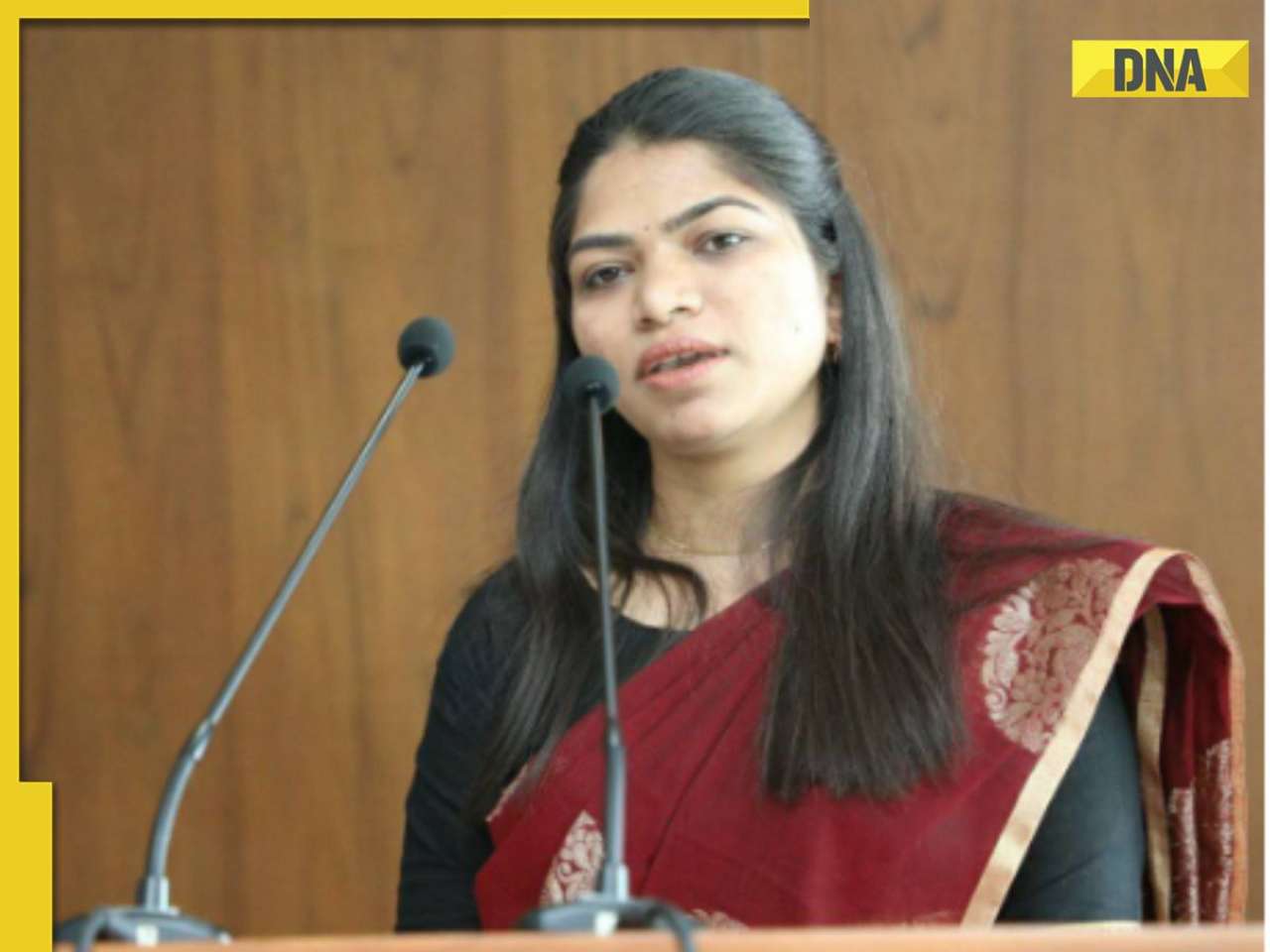

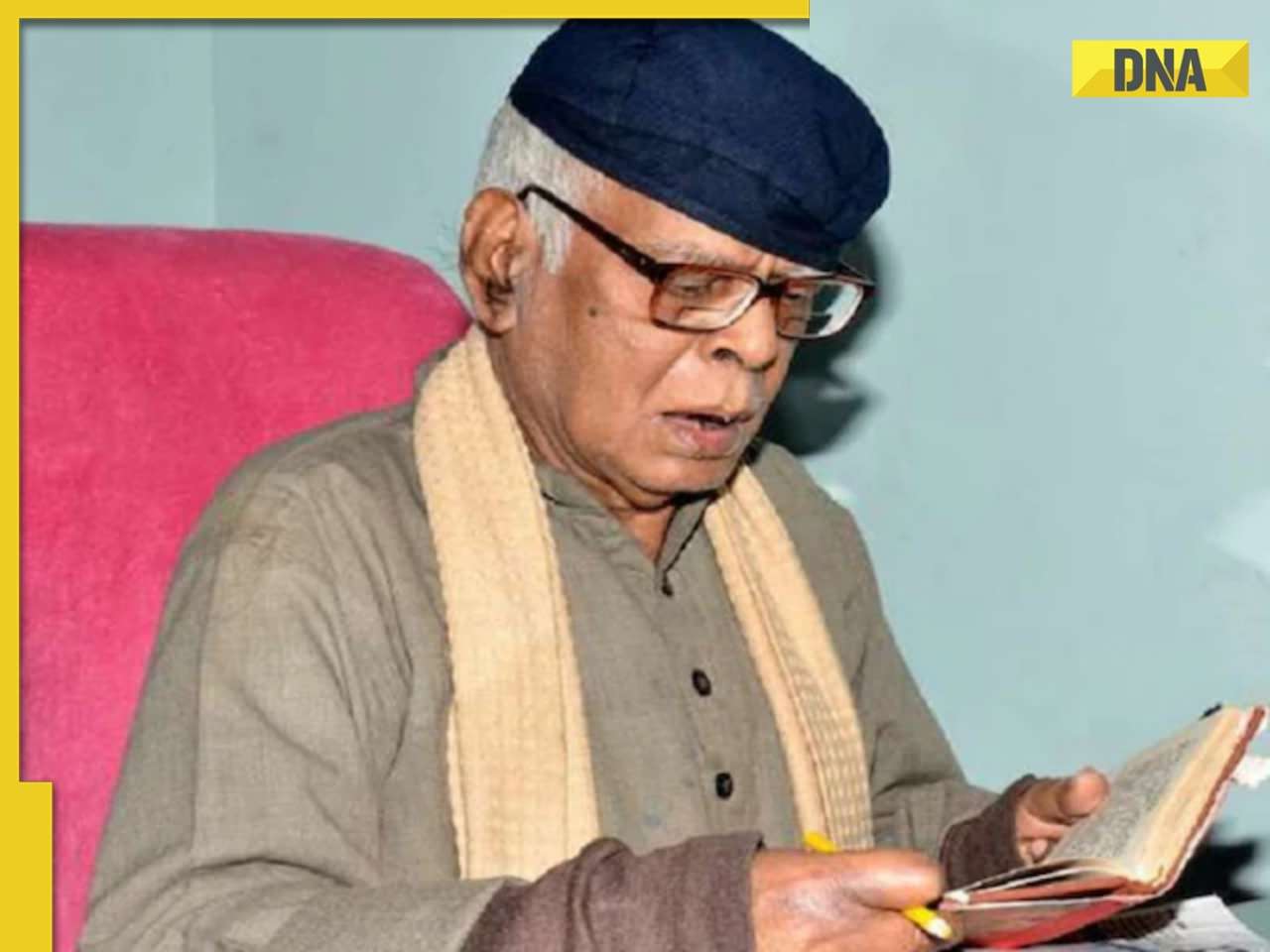

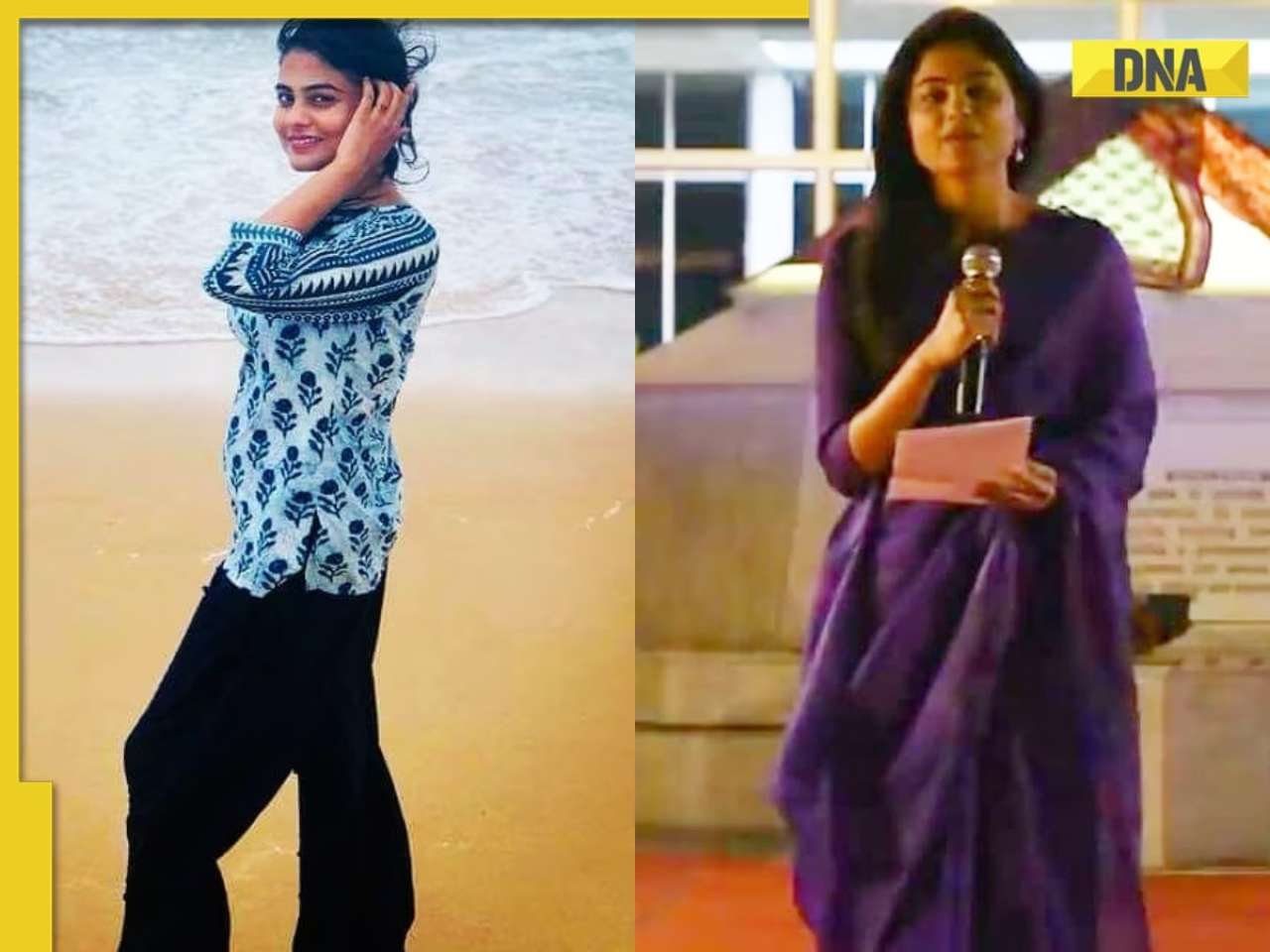







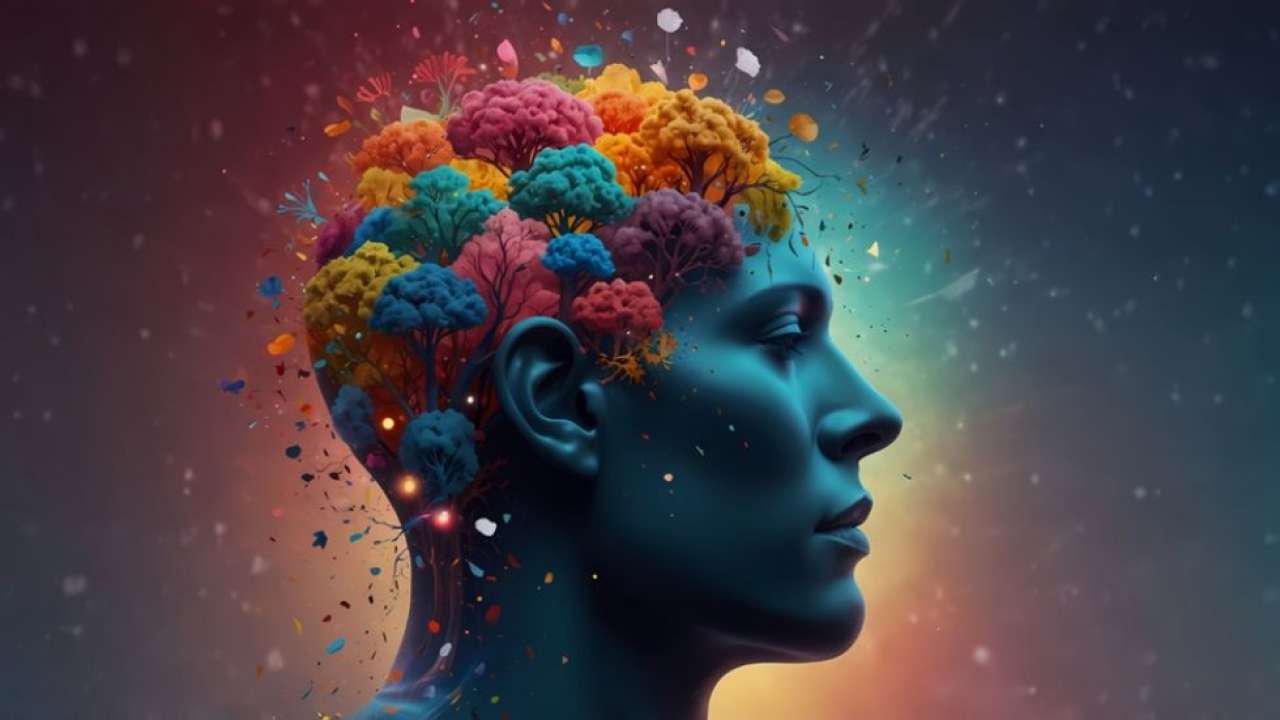








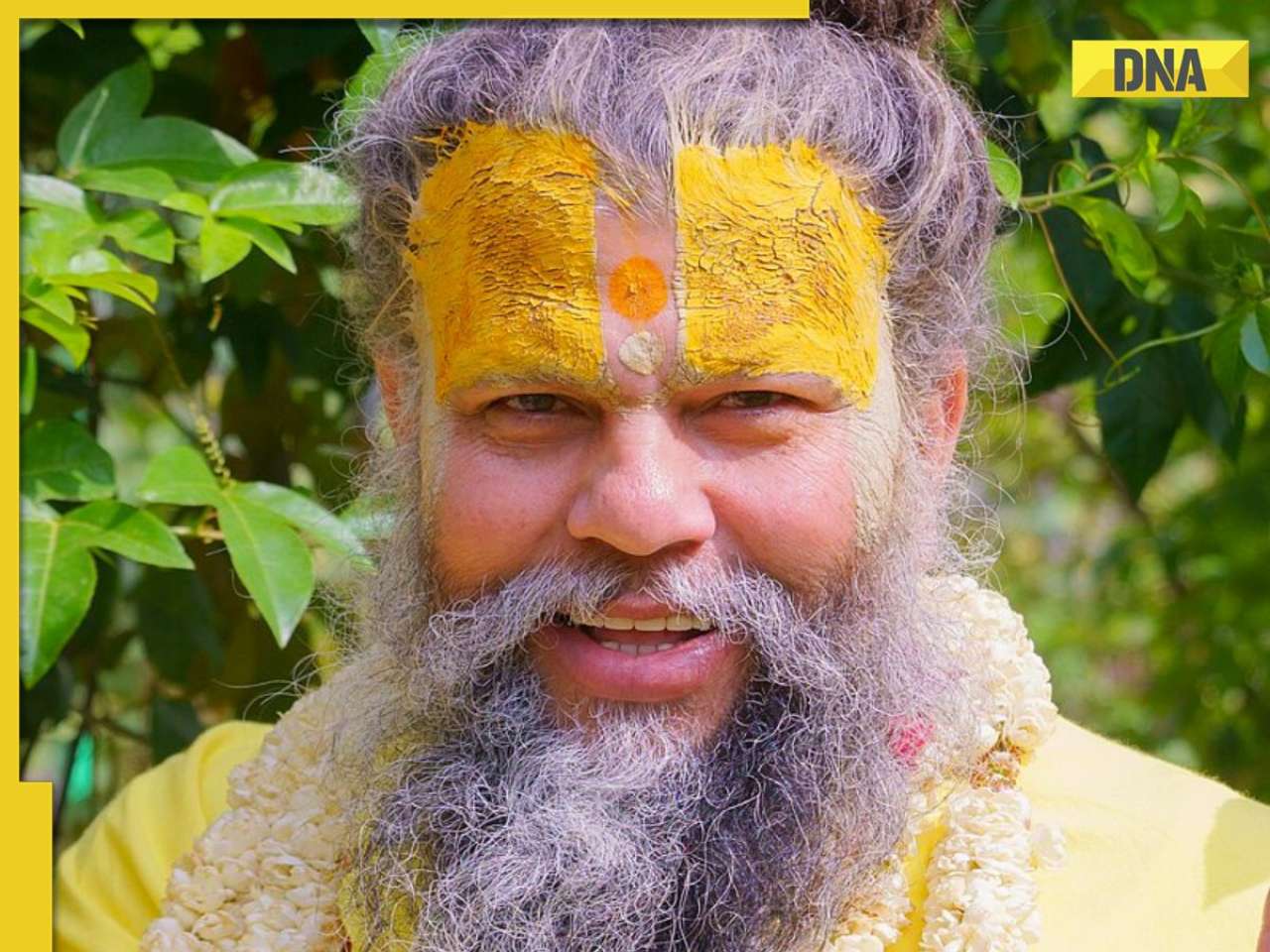
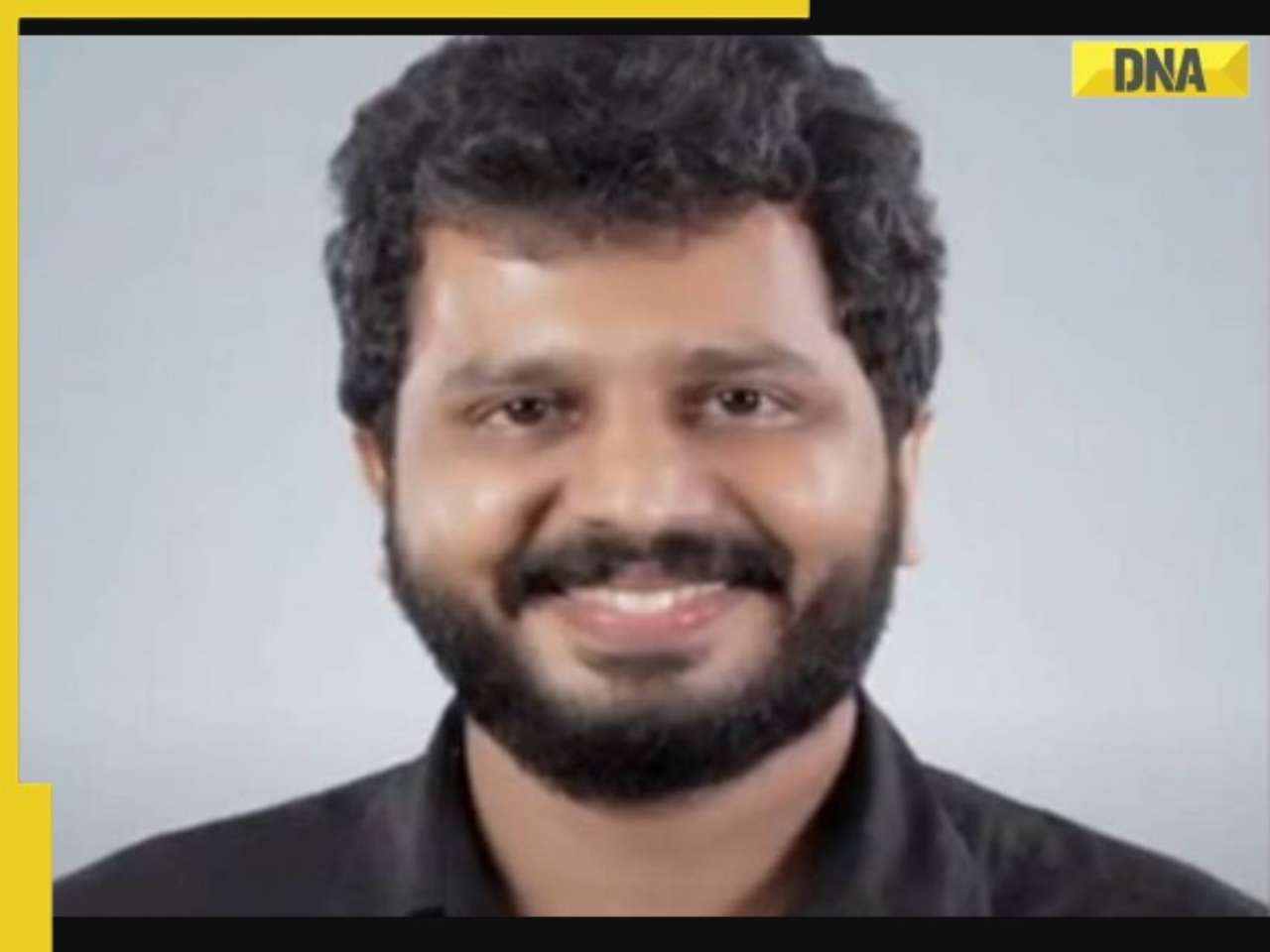

)
)
)
)
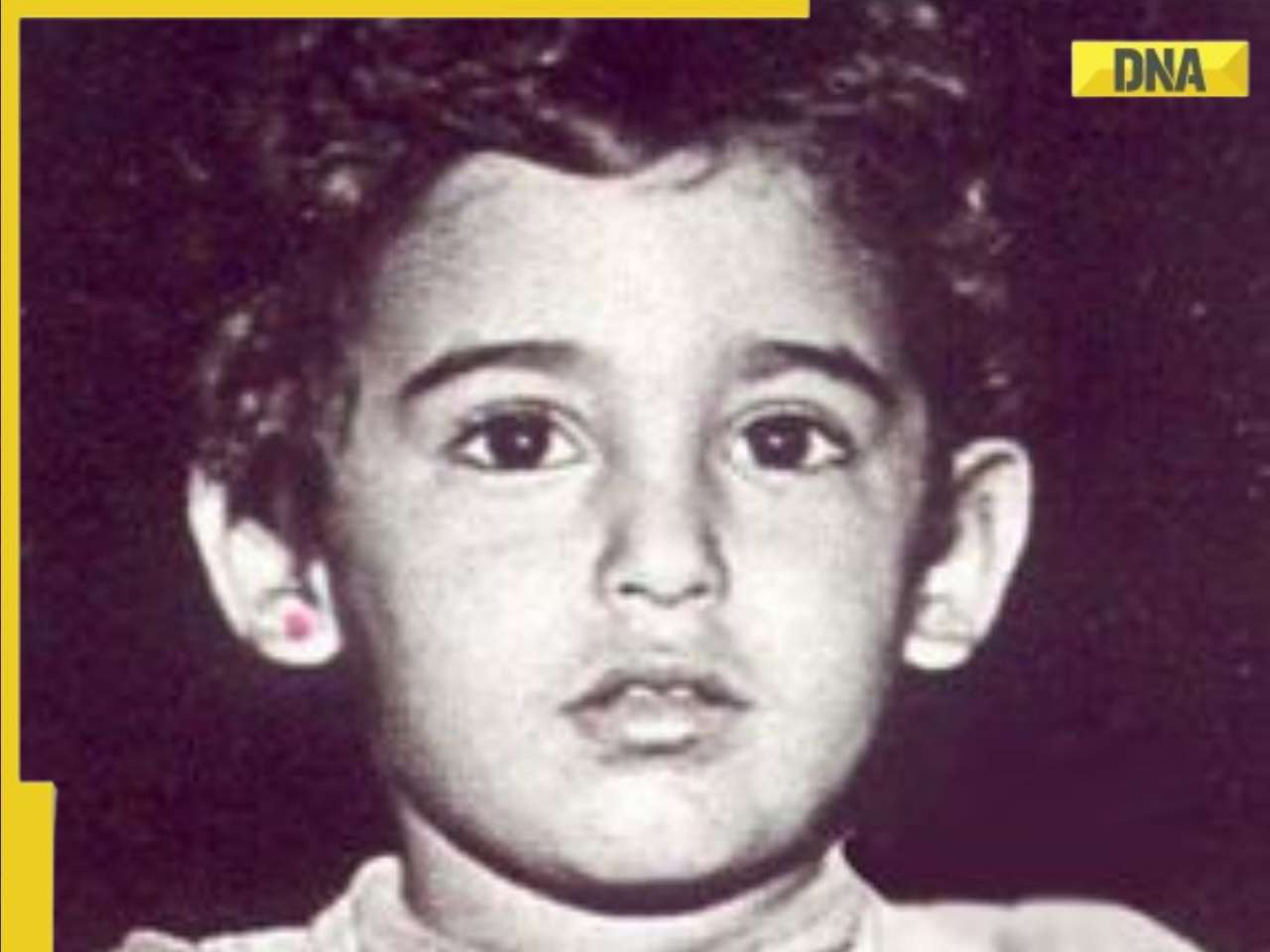)
)
)
)
)
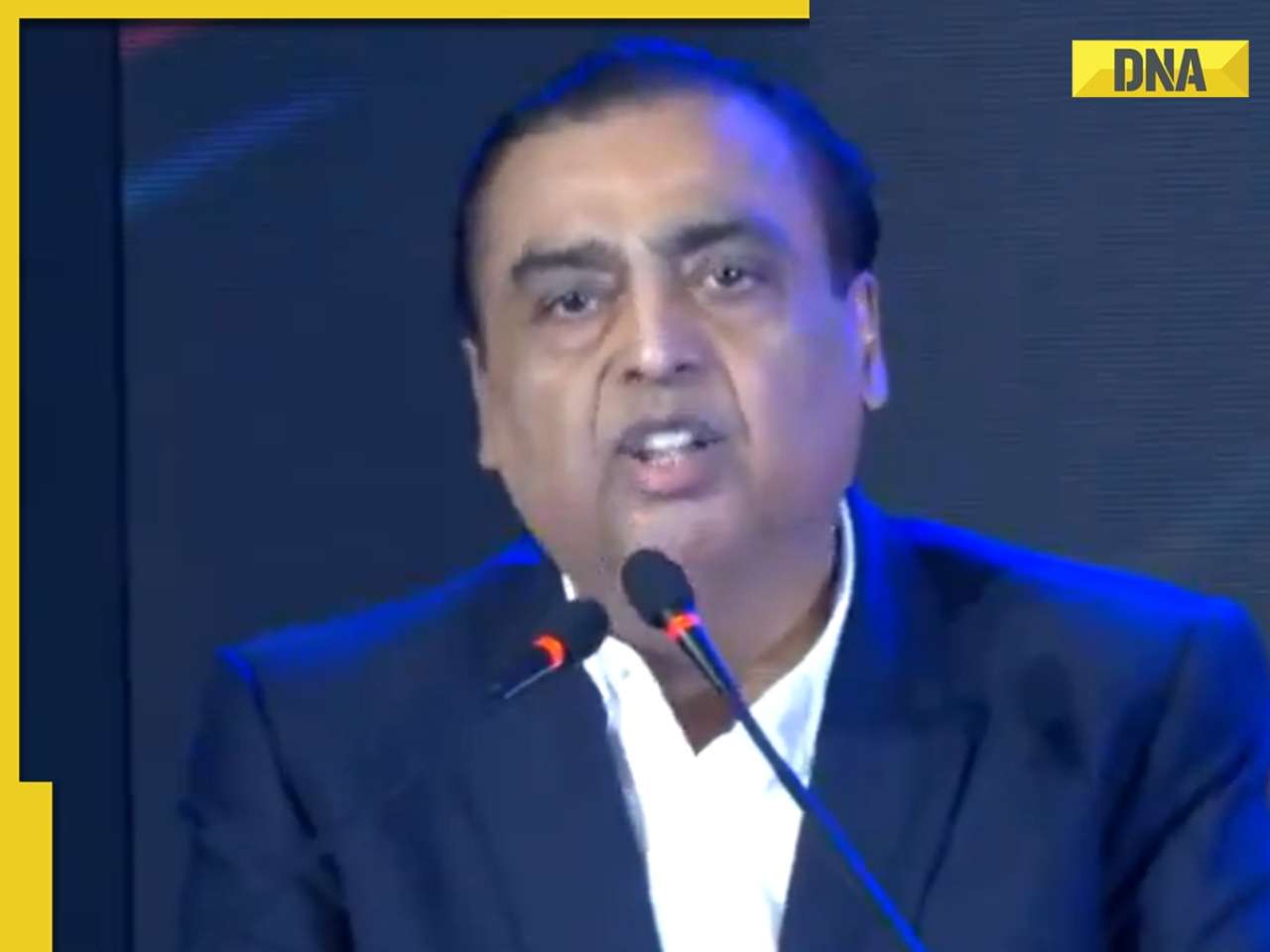)
)
)
)
)
)
 According to the report, parental engagement with adolescents has been found to be low in India with less than half of the parents (47 per cent) caring to check if their homework was done or not.
According to the report, parental engagement with adolescents has been found to be low in India with less than half of the parents (47 per cent) caring to check if their homework was done or not.




)
)
)
)
)
)